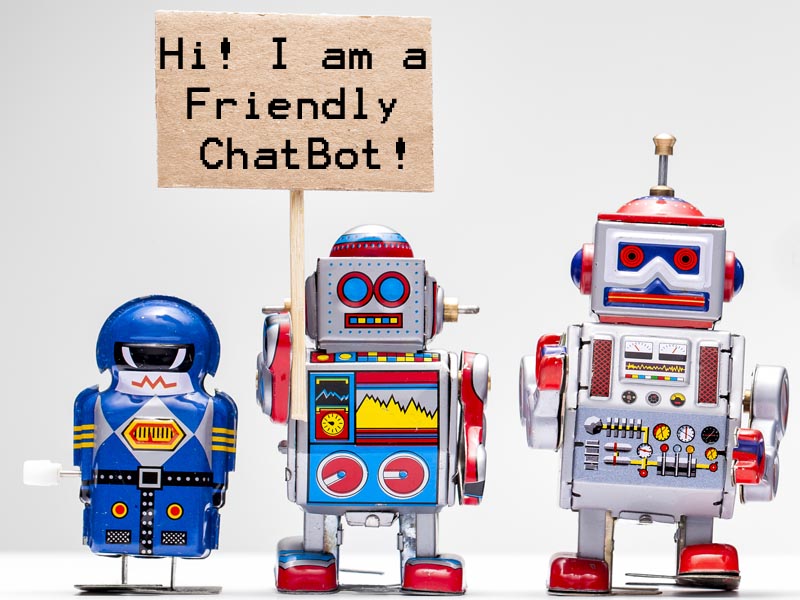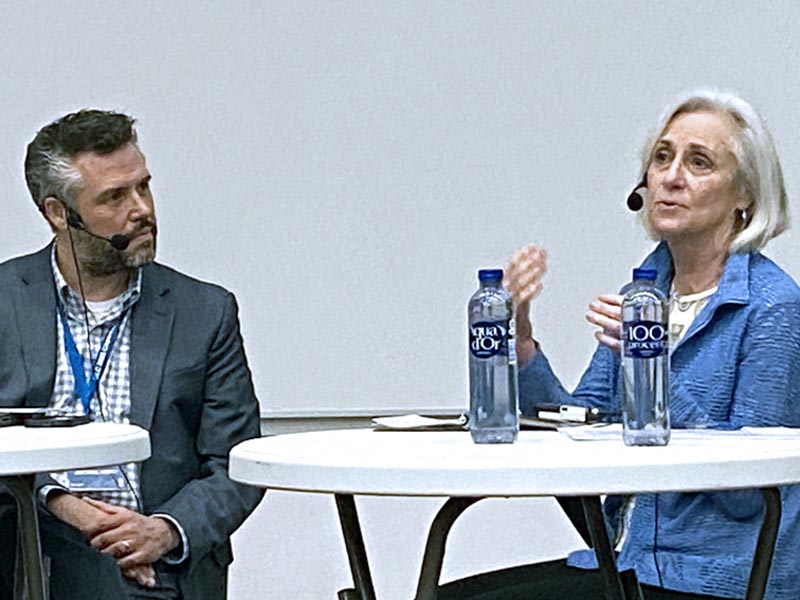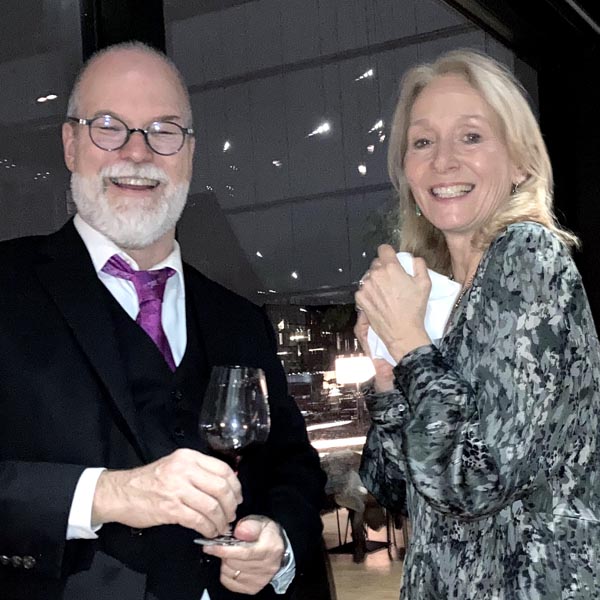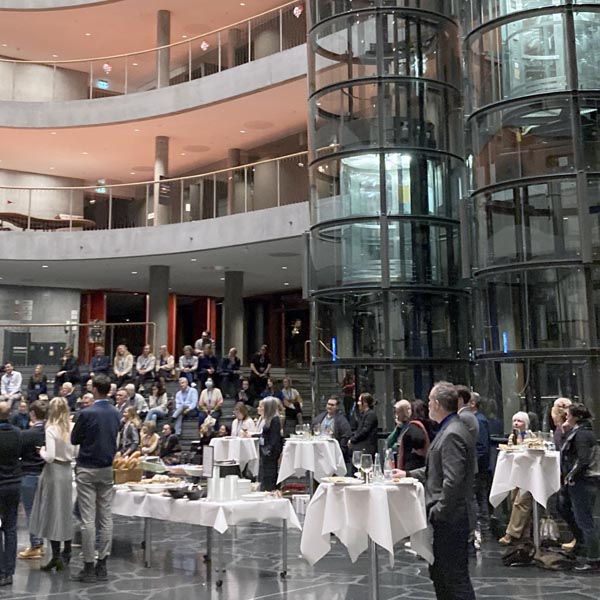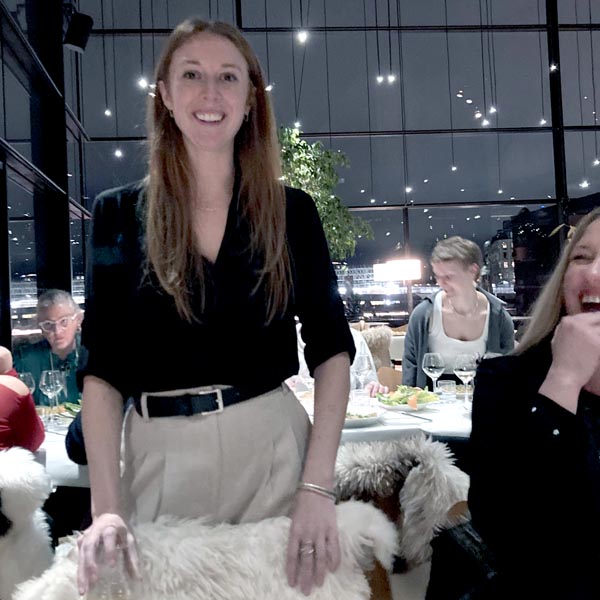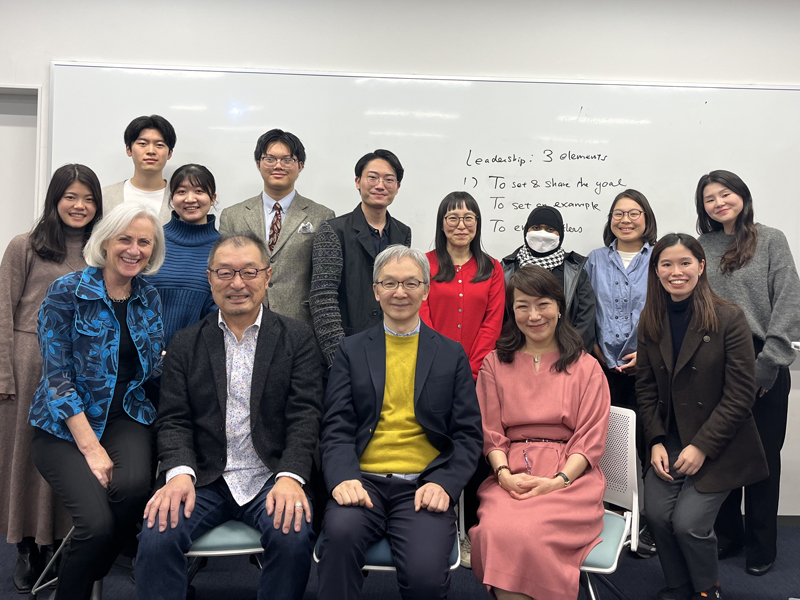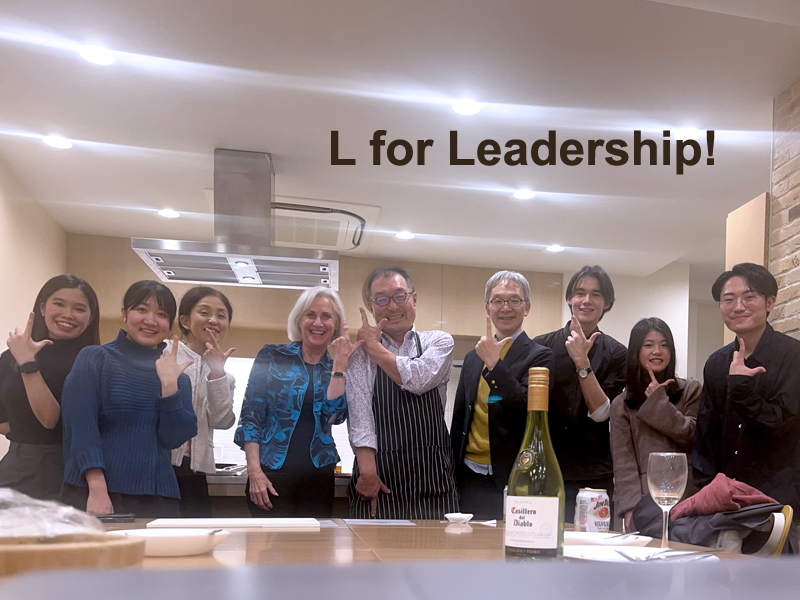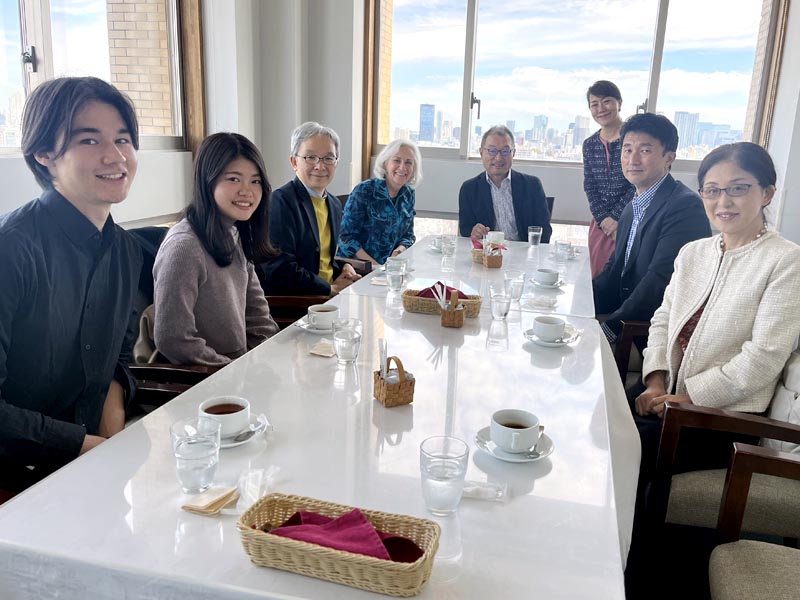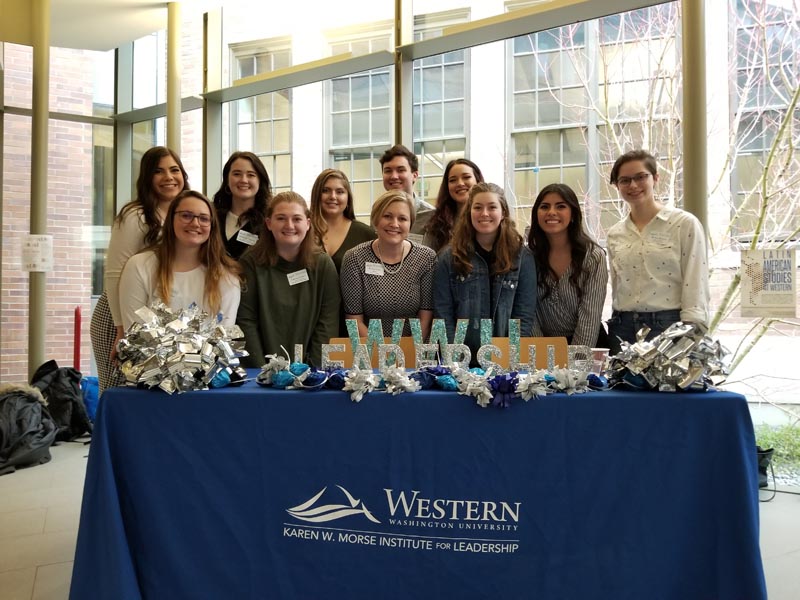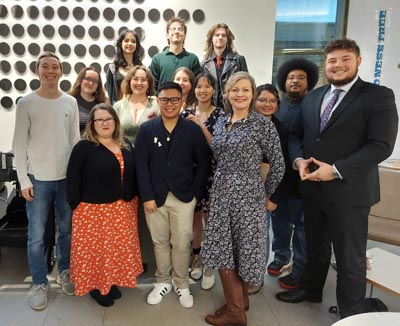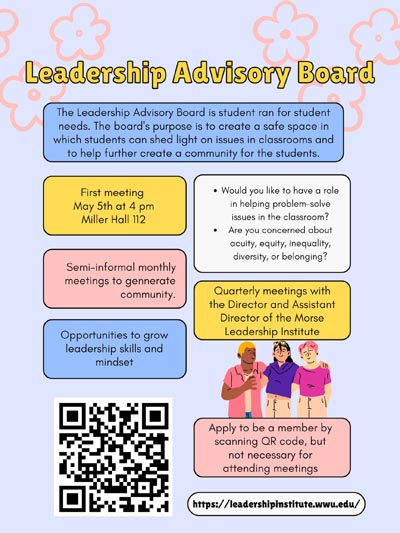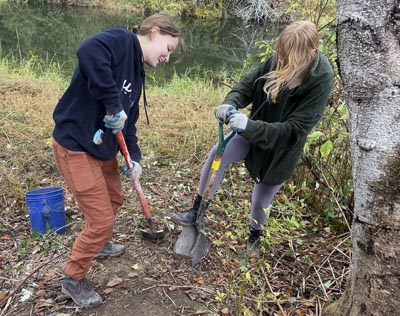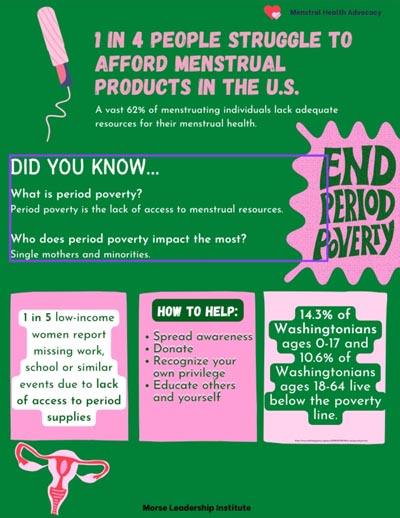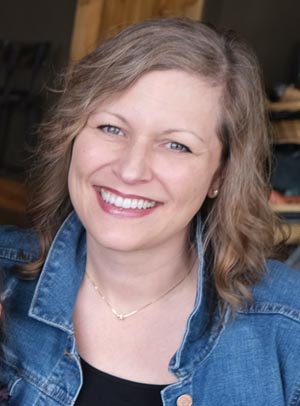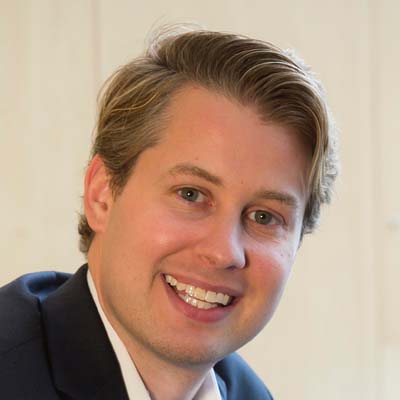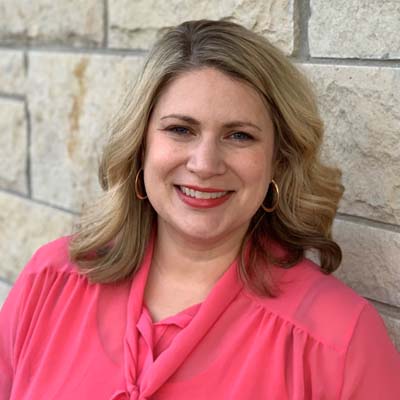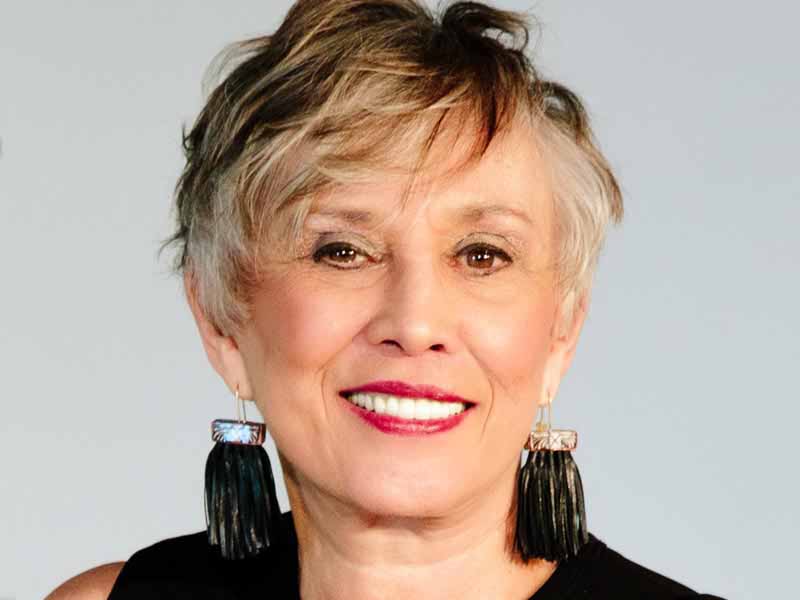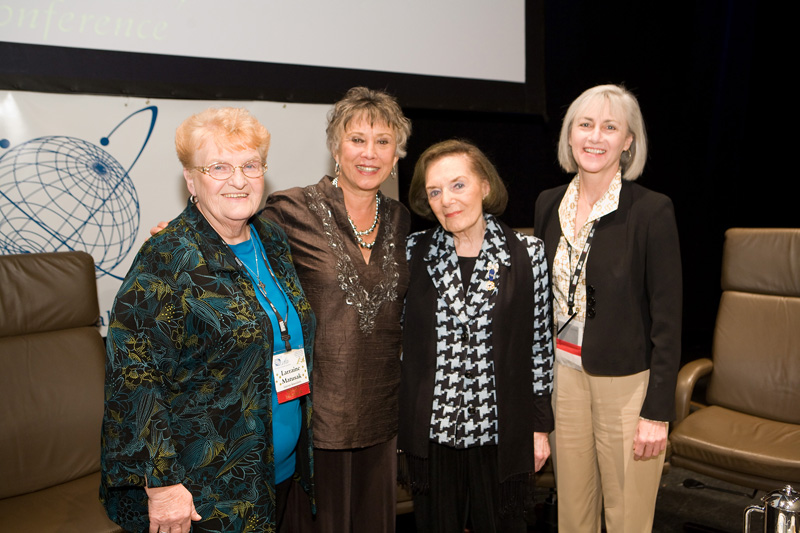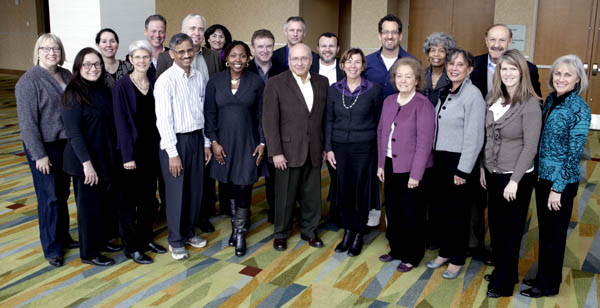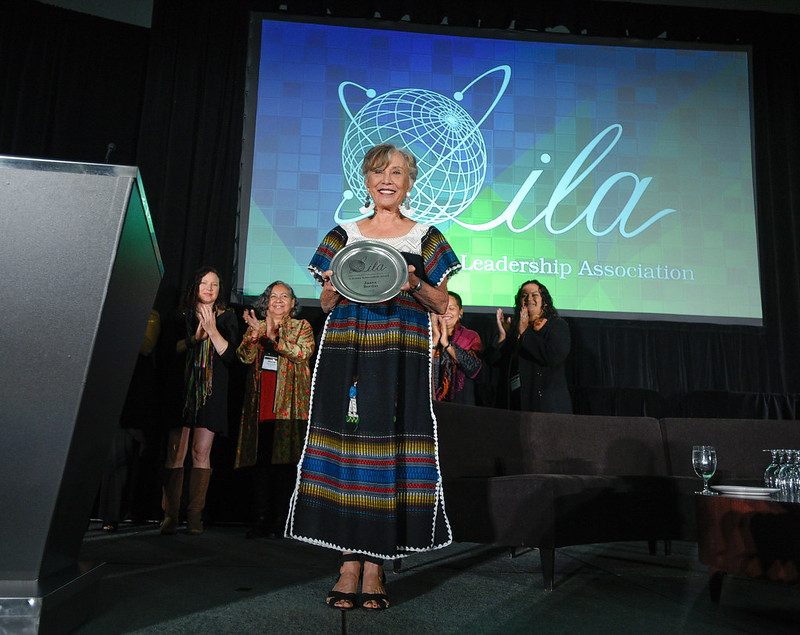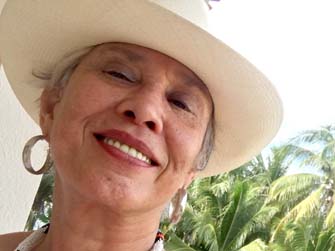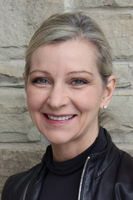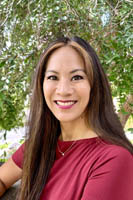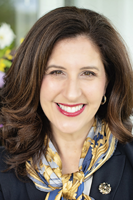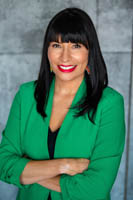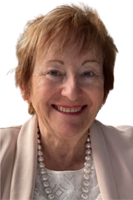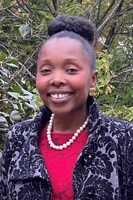Larraine saw my potential and opened all these doors. She realized way back in the ’90s the vision of inclusive leadership. And she saw a young Latina that she could groom and move forward. But she didn’t just do this for me. She started the Kellogg leadership programs, the Kellogg fellows, and then asked me to be an advisor to that program. Lorraine was a mentor to so many and really made a difference in the leadership theory, practice, and proliferation of leadership in our country. I honor her because without her I wouldn’t be who I am today.
What do you think makes your company stand out? Can you share a story?
My company stands out because we started in the ’90s, way before diversity and inclusion were on people’s marquee. Because of my experience as a woman, an immigrant, and a Latina who had maneuvered the dominant culture system and been “the first” in many situations, I understood first-hand the barriers that people from underrepresented groups face. I also knew the assets — the value we add — because when we learn the white male system (and this was a key focus for early women leaders) we have the potential to be twice as good.
When Mestiza Leadership International in the ’90s first started, our slogan was “Preparing collaborative leaders for a global and multicultural age.” At that time there were minimal resources for this process. Today, we are integrating principles from multicultural leadership, Latino leadership, and women’s leadership into mainstream leadership.
In my new book, I also look at intergenerational leadership. We’re going through these tremendous, generational changes where 10,000 Baby Boomers retire every day. The Millennials and Z’s are the largest generations in history. They’re facing some really critical issues in their lifetime, such as global warming and gun violence.
What makes Mestiza Leadership unique is we integrate leadership practices that tap into the talent and assets of our diverse communities, different genders, and ages. This is how we’re going to build a new America. Embracing diversity and inclusion means changing the way we lead. And that’s the purpose of Mestiza Leadership International. My books Salsa Soul and Spirit: Leadership for a Multicultural Age and The Power of Latino Leadership are valuable resources to accomplish this.
Are you working on any new or exciting projects now? How do you think that might help people?
Well, yes, I’m working on some very exciting projects. I have my new book, The Power of Latino Leadership — Ahora! Ahora means “Now” — it’s Latino time in America today. The 2020 Census said Latinos were responsible for more than half the growth in America and we’re going to be 78% of the new entries into the labor market. The census also documented that 80% of small businesses were started by Latinos. Just as important, nearly half of Latinos are under 18.
And so, when you look at the future, which is what leaders do, leaders must have a vision for what’s coming — the question is, “how do I prepare the diverse workforce to be effective contributors and leaders?”
There is a lot of talk today about diversity and inclusion. And many people are supportive but don’t always know what to do. Well, here is something to think about. You know, I’m Dr. Bordas, and I have been through years of mainstream education from the time I was six years old and walked into school and couldn’t speak English. I have read many leadership books by mainstream thought leaders. I have been educated in dominant culture institutions. Just think about all the books that I have read that were crafted from a white male perspective. And yet many people may never have read a book on multicultural leadership or Latino leadership. They haven’t participated in organizations in communities of color. People don’t always learn about the other side.
And I say, let’s get some skin in the game. Let’s start engaging. Let’s start learning and reading about Latino, multicultural, Black and women’s leadership. Let’s expand our leadership IQ, our cultural adaptability, and become leaders for the future. Because 10 years from now, our workforce is going to look very different. The diversity and inclusion journey is an opportunity to grow, learn, and expand. This is what’s exciting to me, that we have an opportunity to fulfill the promise of America.
How have you used your success to bring goodness to the world?
My success is my contribution to the world — it is how I was raised. My family sacrificed a great deal to leave their country, culture, and language to come to a new land. They did that so I could have a better life and more opportunity. I want to pay that forward and support others. I am committed to building a world where people can have equal opportunity regardless of where they came from and who they are. That is the American dream and the source of our greatness.
Ok. Thank you for that. Let’s now jump to the main part of our interview. This may be obvious to you, but it is not intuitive to many people. Can you articulate to our readers five ways that increased diversity can help a company’s bottom line. (Please share a story or example for each.)
The first is the shift from “I” centered to “We” centered organizations. Most of the world’s cultures and women in all cultures are collective — “We” oriented and interdependent. People work for group welfare before personal gain or credit. This encourages teamwork and commitment, and strengthens relationships. People today, especially younger workers, are seeking connectivity and want a sense of belonging and community. People want leaders who are generous with their time, develop others, and share the credit. People of color, Latinos, and women have an advantage because they have “We” orientation and can bring that to organizations.
I have worked with Chevron for several years helping them advance their Latino employees. Their Latino affinity group, SOMOS, has grown 4,000% in the last three years and now has 40 chapters. They are investing in their diverse talent. Chevron’s slogan is “The human energy company,” signaling their commitment to developing a company that is “We” or people centered.
Show respect towards everyone and cultivate the leader as an equal. The hierarchical structures of many organizations continue to breed inequality in the workplace. Yet inclusion means welcoming diverse people to the table and making the table wider. The leader as an equal shows respect to everyone from the maintenance crew to the top executives.
An example of this is TDIndustries, which today is employee-owned and has been chosen by Fortune Magazine as one of the 100 best companies to work with for 21 years in a row. TDI refers to its employees as partners. The CEO’s office isn’t any bigger than other people’s and there are no special parking places. When you walk in there are walls and walls of individual employee pictures, not by rank but by how long they have been there. Following a Servant Leader tradition, TDI believes that good leaders value individual differences, talents, and strengths.
Become adaptable and agile. We are quickly moving towards a society where there will be no dominant group. There was a 1,000 percent increase in the U.S. Census of “white and some other race category,” and half of Millennials and Z’s identify as multicultural. Inclusion and diversity are a leadership imperative, as is an intergenerational approach. How this relates to the bottom line is this is the future workforce and consumer base.
Cultural agility and adaptability are coveted skills for people to manage and grow our diverse workforce and connect to multicultural markets. One example is the push, especially from the younger generations, to work from home, to have more flexible hours, and to have a more casual and “user-friendly” workspace. Another is that young people seek allies, not just mentors. Allies are more lateral relationships, a partnership. Allies also speak out and address inequities in the workplace.
I recently did a training for Microsoft with their top managers on how they can make this shift to becoming allies. Many younger employees do not respond to hierarchy and want to work for a company that is addressing structural inequality. And Microsoft is doing just that, with a five-year plan to advance Black and Latino employees into the higher levels of the company.
Learn from Diverse Communities. To survive, marginalized groups needed to be resourceful, innovative, and entrepreneurial. They learned to do more with less. And they relied on people-power and had a collective or “We” orientation. Think about how women would stretch the soup to feed everyone. Or how my mother raised her six children by “repurposing” the food she brought home from the school lunchroom where she worked. Communities of color have so much to offer organizations and companies, including that traditionally they have had to collectively work for social change. Women had to get the vote when they couldn’t vote.
It is my hope and vision that mainstream leaders will listen, learn, engage, and integrate the great lessons of underrepresented groups. In many tribal traditions people would gather in a circle and after speaking about the purpose of the convening, the leader would listen. He/she would encourage the common wisdom to surface. Listening as a leadership practice is revered in many traditions and was heeded by Nelson Mandela as he built a new nation. “As a leader. I have always endeavored to listen to what each and every person in a discussion had to say before venturing my own opinion.”
Set the Standard — Invigorate the work ethic with “ganas” and celebration. The Latino work ethic is legendary. They have the highest participation in the workforce and do hard jobs like construction, agriculture, or service work. But I like to say, “Latinos love to work — because that way they contribute and take care of the family.”
More than that, there is a tradition of “doing it with GUSTO or Ganas (energy or desire),” to enjoy one’s work. This brings me to a very special contribution that inclusion brings, and that is a celebration or “leading with salsa.” The way marginalized communities kept moving forward through years of oppression and discrimination was to celebrate life! Celebrating accomplishments keeps people advancing together.
In communities of color, at conferences and events, there is always food, music, and time to connect with people and celebrate. In my extensive work building Latino affinity groups at corporations from Microsoft to Google to General Electric, we make work more enjoyable by having celebrations. Celebration is a strategy that strengthens relationships and increases commitment to the company and the team.
What advice would you give to other business leaders to help their employees to thrive?
There is a saying in Spanish, “Cada cabeza es un mundo” — in everyone’s head is a whole world. The mainstream culture tends to homogenize and in the past valued conformity. But each person is unique — a leader should “know their people,” in an authentic way — know their values; talents and challenges; what motivates them; and what they aspire to.
In my work with young leaders (Millennials and Z’s), they talk about the importance of sharing people’s narratives or stories. I start every leadership program with an exercise where people do that. It’s important to remember that one generation ago our society was not so mobile — we would have known each other’s grandparents. For employees to thrive they have to feel part of the company, feel valued by the leader, and be committed to giving it their best. I think this starts with building authentic relationships and this begins with sharing your “story.”
What advice would you give to other business leaders about how to manage a large team?
The most important thing for me is that people have a shared vision that they helped to develop and are committed to. Then they agree on the shared values that will guide them. People are clear on expectations and outcomes, and what their role is. By “having the right people on the bus,” the leader can manage a large team because people will be managing themselves.
Is there a person in the world, or in the US whom you would love to have a private breakfast or lunch with, and why? He or she might just see this 🙂
Warren Buffet — he has shown us that wealth does not mean you move into a big mansion or have multiple mansions. He has stayed connected to the community from whence he came. He has been a great family man. He is brilliant and has shaped outstanding companies. He connects to his share-holder and most important, he will use his wealth for the public good.
How can readers further follow your work online?
They can order my new book on Amazon — The Power of Latino Leadership — Ahora! They can follow me on Facebook, Instagram, Linkedin, and TikTok. My websites are www.mestizaleadership.com and www.Juanabordas.com
This interview was originally published in Authority Magazine and is reprinted here with permission.
